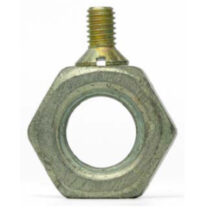 When a business that owes you money enters a restructuring process – either through a bankruptcy filing or through less formal means – you must act swiftly and strategically to protect your interests. As an unsecured creditor you are particularly vulnerable to significant loss. To make things worse, you are faced with having to invest substantial time in the matter as you attempt to salvage what you can of your financial investment.
When a business that owes you money enters a restructuring process – either through a bankruptcy filing or through less formal means – you must act swiftly and strategically to protect your interests. As an unsecured creditor you are particularly vulnerable to significant loss. To make things worse, you are faced with having to invest substantial time in the matter as you attempt to salvage what you can of your financial investment.
Participating in an unsecured creditors’ committee is just the first step in safeguarding yourself. Once you have decided to do that, you have several important decisions ahead of you, starting with which law firm to hire. There is usually no shortage of qualified candidates, which can make selection difficult. And since the selection process necessarily moves rapidly, certain key criteria are sure to be overlooked. Two, in particular, may be omitted or glossed over.
1. Does the firm have debtor-side experience?
At its core, the job of committee counsel is to push the debtor – and the debtor’s counsel – to keep the interests of creditors ahead of those who might be competing for the company’s interests. Understandably, shareholders and management are often looking to remove as large a portion as possible of the debtor’s remaining assets from the pool available to pay creditors. The key is to identify the strategy that will reward vendors, employees, and other creditors for doing business with the debtor in the past while preserving value for the future. Of course, competing interests are looking to grab as much as they can.
Fortunately, most of the strategies that these competing interests may use can be forestalled, if the committee counsel knows what they are and anticipates them. To do this effectively, the committee counsel has to think like the debtor’s counsel and the best way to do this is with extensive experience on that side of the table. In other words, by having counsel that regularly represents debtors in chapter 11 cases, the creditors and members of their committee are armed with the expertise to protect and advance their goals.
2. Is the firm the right size for your needs?
Name brand law firms can be very useful in any number of situations. They can assign a veritable army of attorneys and other professionals to tackle a given matter. This can be especially helpful in complicated litigation or in circumstances where the cost of not prevailing will readily outweigh the legal fees. In most bankruptcy cases, though, there is a very limited pool of remaining assets and every dollar spent on legal fees is a dollar that will not be available to satisfy creditors. So it pays – quite literally – to select the right sized firm with the demonstrated capability to meet the committee’s needs. Additionally, larger firms typically send tasks as far down the food chain as they can possibly go. For many bankruptcy cases, this may mean that day-to-day work is done by a team of associates and paralegals under the occasional direction of a partner. Smaller firms, on the other hand, rely on direct partner oversight of each matter and the individual counsel is keenly aware that his or her own reputation is on the line at every step. Furthermore, partners at smaller firms often bill at rates comparable to those of senior associates at the big firms.
Selecting a committee counsel is never a simple process, since each member of the committee will have prejudices and preferences. But by staying focused on the desired end result – to protect as much of the debtor’s asset pool as possible for the creditors – and enumerating essential characteristics, you can select representation that will serve your interests very well.







